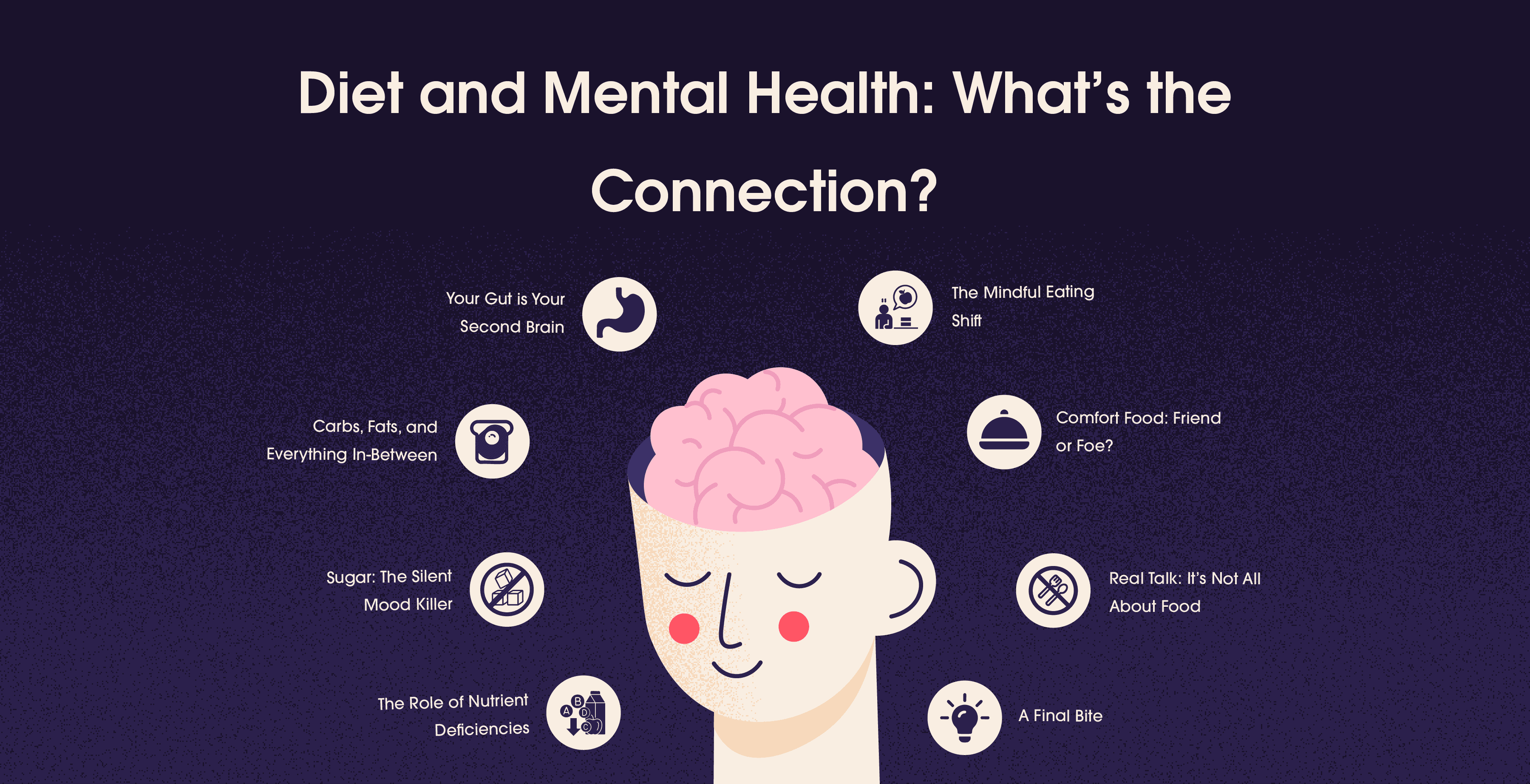The Truth About Testosterone-Boosting Foods and Diets
Mar 13, 2025
Sayfali Rawlani
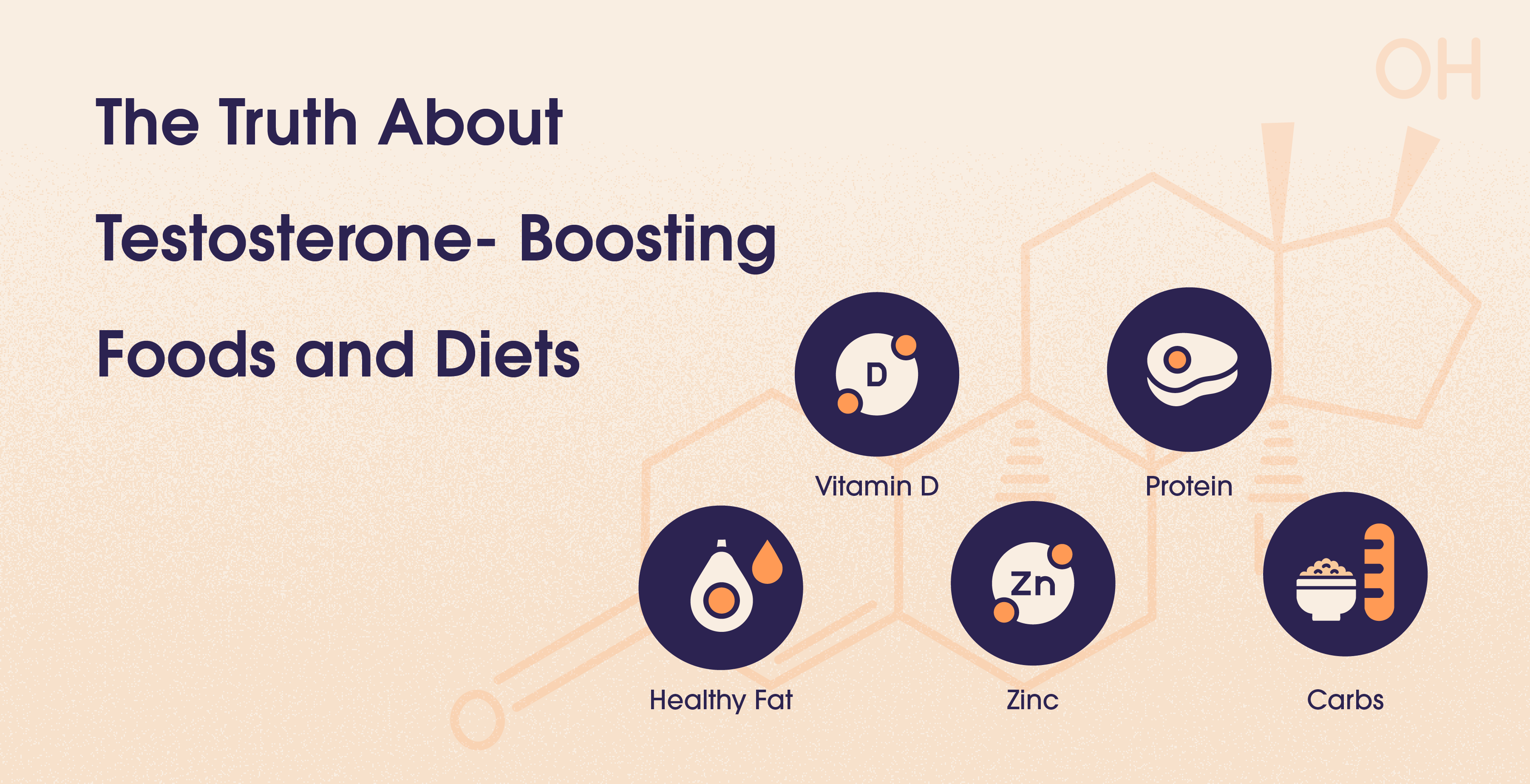


Table Of Contents
Testosterone—often dubbed the “male hormone,” though it plays a critical role in both men and women—is the silent architect of energy, strength, and overall vitality. It influences everything from muscle growth to cognitive sharpness, and yes, even mood stability. Naturally, when levels dip, people start hunting for ways to restore the balance. Enter testosterone-boosting diets—an appealing, all-natural promise to reclaim peak performance. But do they actually work, or is it all just clever marketing wrapped in nutrition labels? Let’s break it down.
Highlights
Testosterone influences muscle growth, cognitive function, and mood stability.
Foods impact hormone production, but no single food can drastically increase testosterone overnight.
Healthy fats like olive oil, avocados, and fatty fish support hormone synthesis.
Zinc deficiency can lower testosterone; sources include oysters, pumpkin seeds, and lean meats.
Vitamin D plays a key role; sunlight, fatty fish, and fortified dairy help maintain levels.
Excess protein can suppress testosterone by increasing cortisol; balance is crucial.
Carbs help regulate cortisol and support hormonal balance; whole grains and legumes are beneficial.
Chronic stress, poor sleep, and lack of exercise can counteract dietary efforts.
Resistance training, especially compound movements, is a powerful testosterone booster.
Sustainable lifestyle changes, not quick-fix diets, are key to long-term testosterone optimization.
The Science (and the Myths) Behind Food and Hormones
Food undeniably impacts hormone production. Every meal you eat is more than just fuel—it’s biochemical input that tells your body what to prioritize. However, the notion that a few “superfoods” can single-handedly revamp your testosterone levels is, at best, an oversimplification.
Many diets tout foods like oysters, red meat, eggs, and leafy greens as “testosterone powerhouses.” There’s some truth to this—these foods contain zinc, vitamin D, and healthy fats, all of which contribute to hormone synthesis. But here’s the kicker: eating them won’t magically spike your testosterone overnight. It’s more about long-term dietary patterns than any single “miracle food.”
Nutrients That Matter (More Than the Hype)
If you’re looking to optimize testosterone levels, the focus should be on nutrient density rather than quick fixes. Here’s what actually moves the needle:
Healthy Fats
Testosterone is a steroid hormone, which means it’s derived from cholesterol. Low-fat diets, especially those that strip out quality fats, can actually tank your testosterone. Think olive oil, avocados, nuts, seeds, and fatty fish. These aren’t just “healthy fats”—they’re essential for hormone production.
Zinc
Zinc plays a crucial role in regulating testosterone levels. Deficiency in this mineral is strongly linked to lower testosterone production. While oysters are the poster child for zinc, you can also find it in pumpkin seeds, chickpeas, and lean meats.
Vitamin D
Often overlooked, vitamin D functions almost like a hormone in the body. Studies suggest that adequate levels of vitamin D correlate with better testosterone levels. While sunlight is the best source, fatty fish, fortified dairy, and egg yolks can help bridge the gap.
Protein
While protein is critical for muscle maintenance, an ultra-high-protein, low-carb diet can backfire. Too much protein can suppress testosterone by increasing cortisol (the stress hormone). Balance is key—lean meats, eggs, and plant-based sources like lentils and quinoa offer solid protein without overloading the system.
Carbs
Low-carb diets are popular for weight loss, but cutting carbs too aggressively can negatively affect testosterone. Carbs help regulate cortisol, which, when chronically elevated, inhibits testosterone production. Whole grains, sweet potatoes, and legumes provide slow-digesting, nutrient-rich carbs that support hormonal balance.
The Problem with “Testosterone Diets”
It’s tempting to believe that eating specific foods will turn the dial up on testosterone, but it’s rarely that simple. The reality? No single food or diet will override other factors like stress, sleep, or exercise. A poor lifestyle can undo even the most well-curated diet.
For instance, chronic stress floods your system with cortisol, actively suppressing testosterone. Sleep deprivation? That’s another major testosterone killer. And let’s not forget physical activity—resistance training, especially compound movements like squats and deadlifts, is one of the most potent natural testosterone boosters.
Simply put, you can eat all the oysters and eggs in the world, but if you’re running on four hours of sleep, drowning in stress, and skipping workouts, your testosterone levels aren’t going anywhere.
It’s a Marathon, Not a Sprint
If you’re serious about supporting testosterone through diet, shift your focus from isolated “boosters” to overall lifestyle optimization. Prioritize whole, nutrient-dense foods, manage stress, get quality sleep, and train effectively.
Testosterone isn’t built in a day, and neither is a well-functioning body. So, forget the fads, ditch the gimmicks, and focus on sustainable habits. That’s where real results lie.
References
Testosterone—often dubbed the “male hormone,” though it plays a critical role in both men and women—is the silent architect of energy, strength, and overall vitality. It influences everything from muscle growth to cognitive sharpness, and yes, even mood stability. Naturally, when levels dip, people start hunting for ways to restore the balance. Enter testosterone-boosting diets—an appealing, all-natural promise to reclaim peak performance. But do they actually work, or is it all just clever marketing wrapped in nutrition labels? Let’s break it down.
Highlights
Testosterone influences muscle growth, cognitive function, and mood stability.
Foods impact hormone production, but no single food can drastically increase testosterone overnight.
Healthy fats like olive oil, avocados, and fatty fish support hormone synthesis.
Zinc deficiency can lower testosterone; sources include oysters, pumpkin seeds, and lean meats.
Vitamin D plays a key role; sunlight, fatty fish, and fortified dairy help maintain levels.
Excess protein can suppress testosterone by increasing cortisol; balance is crucial.
Carbs help regulate cortisol and support hormonal balance; whole grains and legumes are beneficial.
Chronic stress, poor sleep, and lack of exercise can counteract dietary efforts.
Resistance training, especially compound movements, is a powerful testosterone booster.
Sustainable lifestyle changes, not quick-fix diets, are key to long-term testosterone optimization.
The Science (and the Myths) Behind Food and Hormones
Food undeniably impacts hormone production. Every meal you eat is more than just fuel—it’s biochemical input that tells your body what to prioritize. However, the notion that a few “superfoods” can single-handedly revamp your testosterone levels is, at best, an oversimplification.
Many diets tout foods like oysters, red meat, eggs, and leafy greens as “testosterone powerhouses.” There’s some truth to this—these foods contain zinc, vitamin D, and healthy fats, all of which contribute to hormone synthesis. But here’s the kicker: eating them won’t magically spike your testosterone overnight. It’s more about long-term dietary patterns than any single “miracle food.”
Nutrients That Matter (More Than the Hype)
If you’re looking to optimize testosterone levels, the focus should be on nutrient density rather than quick fixes. Here’s what actually moves the needle:
Healthy Fats
Testosterone is a steroid hormone, which means it’s derived from cholesterol. Low-fat diets, especially those that strip out quality fats, can actually tank your testosterone. Think olive oil, avocados, nuts, seeds, and fatty fish. These aren’t just “healthy fats”—they’re essential for hormone production.
Zinc
Zinc plays a crucial role in regulating testosterone levels. Deficiency in this mineral is strongly linked to lower testosterone production. While oysters are the poster child for zinc, you can also find it in pumpkin seeds, chickpeas, and lean meats.
Vitamin D
Often overlooked, vitamin D functions almost like a hormone in the body. Studies suggest that adequate levels of vitamin D correlate with better testosterone levels. While sunlight is the best source, fatty fish, fortified dairy, and egg yolks can help bridge the gap.
Protein
While protein is critical for muscle maintenance, an ultra-high-protein, low-carb diet can backfire. Too much protein can suppress testosterone by increasing cortisol (the stress hormone). Balance is key—lean meats, eggs, and plant-based sources like lentils and quinoa offer solid protein without overloading the system.
Carbs
Low-carb diets are popular for weight loss, but cutting carbs too aggressively can negatively affect testosterone. Carbs help regulate cortisol, which, when chronically elevated, inhibits testosterone production. Whole grains, sweet potatoes, and legumes provide slow-digesting, nutrient-rich carbs that support hormonal balance.
The Problem with “Testosterone Diets”
It’s tempting to believe that eating specific foods will turn the dial up on testosterone, but it’s rarely that simple. The reality? No single food or diet will override other factors like stress, sleep, or exercise. A poor lifestyle can undo even the most well-curated diet.
For instance, chronic stress floods your system with cortisol, actively suppressing testosterone. Sleep deprivation? That’s another major testosterone killer. And let’s not forget physical activity—resistance training, especially compound movements like squats and deadlifts, is one of the most potent natural testosterone boosters.
Simply put, you can eat all the oysters and eggs in the world, but if you’re running on four hours of sleep, drowning in stress, and skipping workouts, your testosterone levels aren’t going anywhere.
It’s a Marathon, Not a Sprint
If you’re serious about supporting testosterone through diet, shift your focus from isolated “boosters” to overall lifestyle optimization. Prioritize whole, nutrient-dense foods, manage stress, get quality sleep, and train effectively.
Testosterone isn’t built in a day, and neither is a well-functioning body. So, forget the fads, ditch the gimmicks, and focus on sustainable habits. That’s where real results lie.
References
Table Of Contents
Table Of Contents
Table Of Contents
Read More
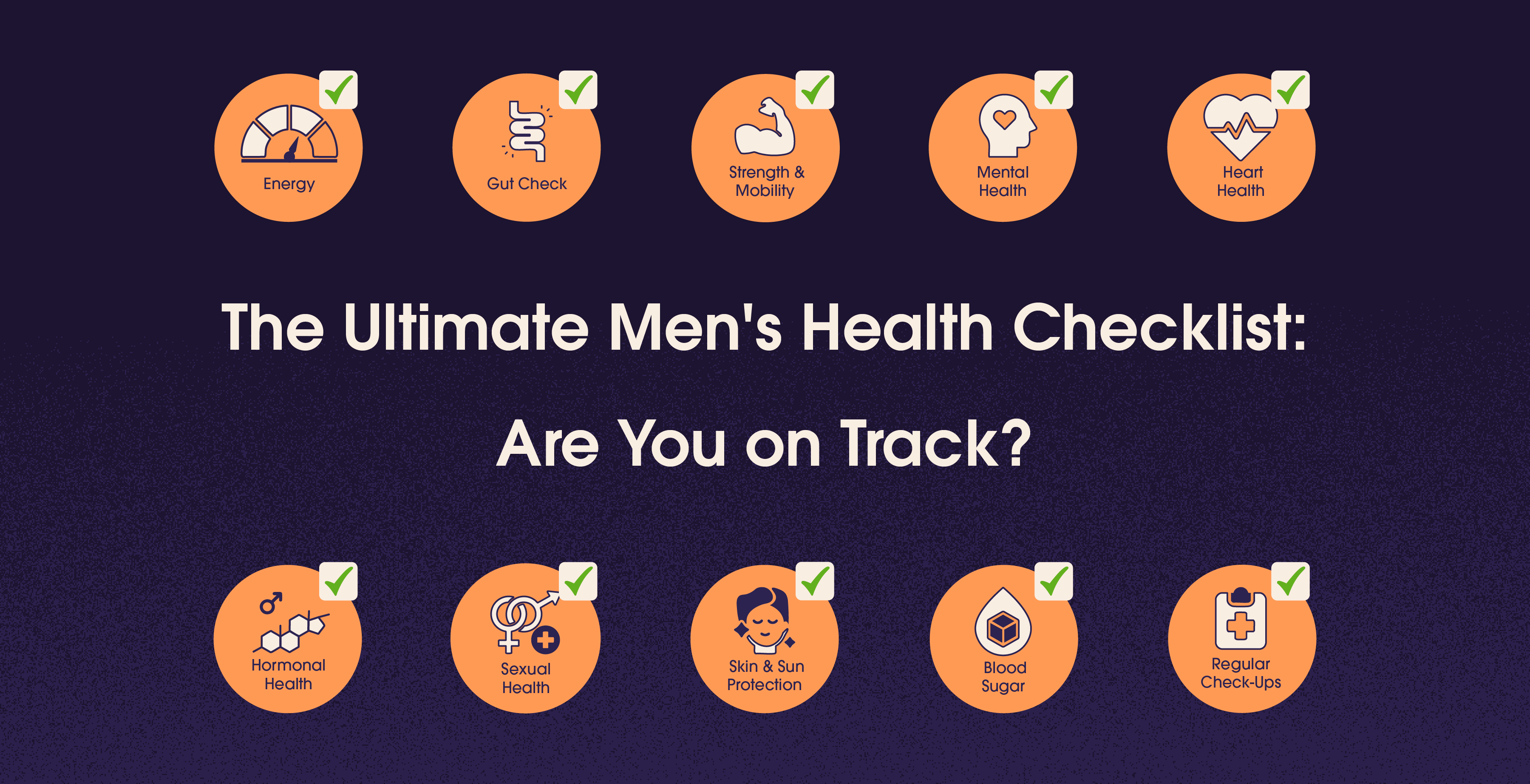

Feb 25, 2025
Sayfali Rawlani
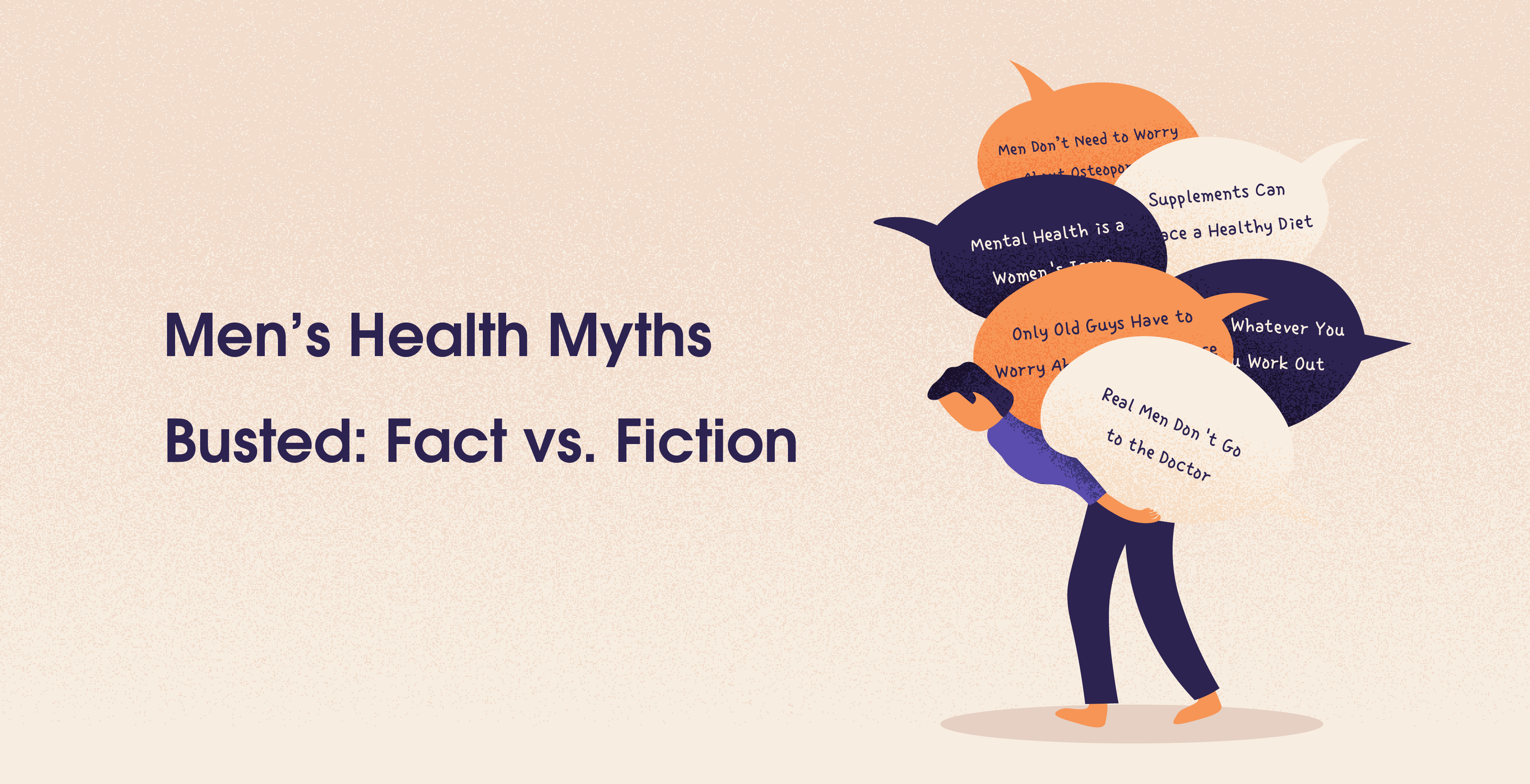

Feb 19, 2025
Sayfali Rawlani
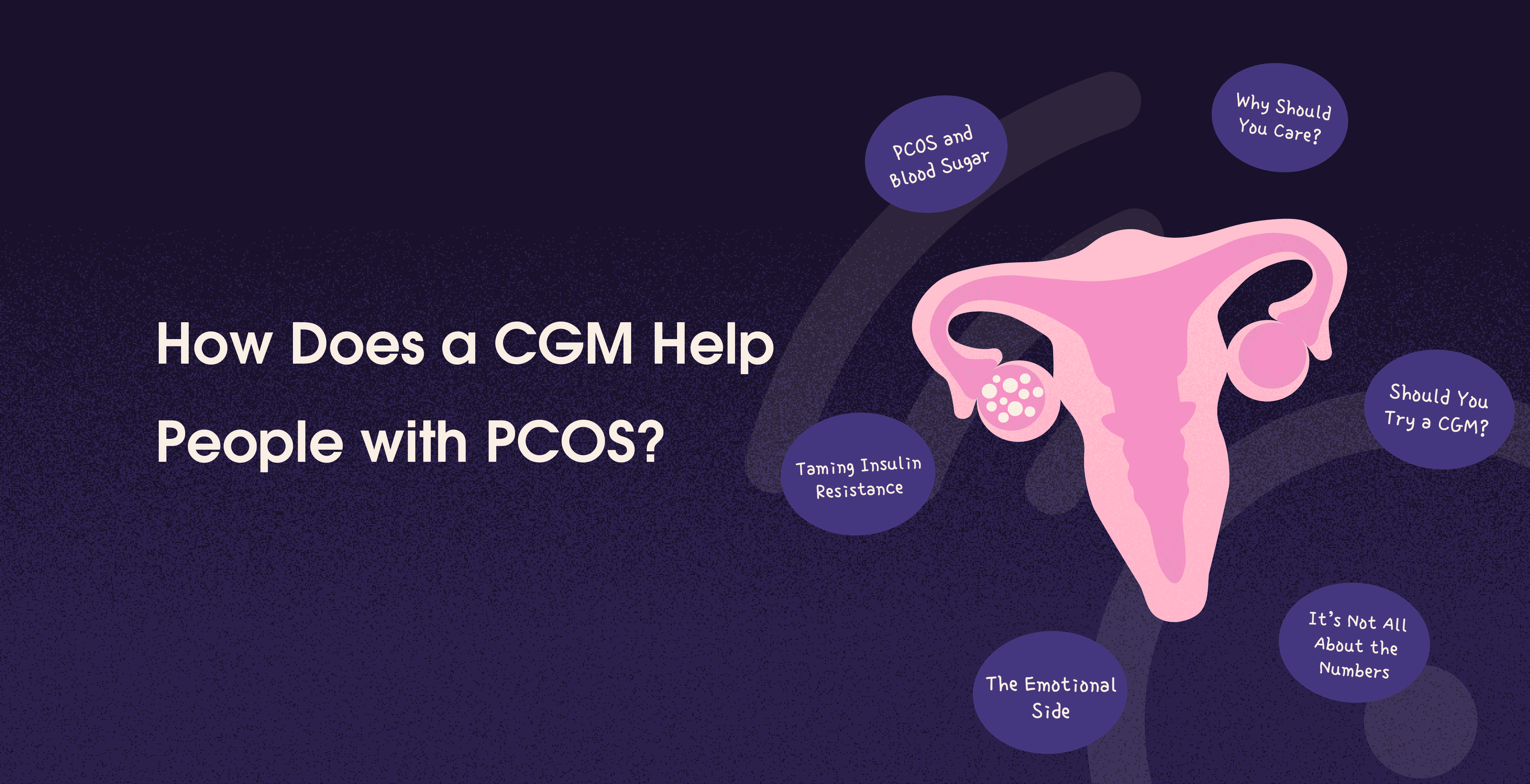

Oct 21, 2024
Sayfali Rawlani



Copyright © 2025 trst health. All right reserved.

